Q&A: Mayoral Candidate David Catania
Longtime Councilmember David Catania tries to convince voters he's the best -- and most progressive -- choice in the race for mayor
By John Riley on October 8, 2014 @JRileyMW
because I think it takes a certain amount of drive and desire to put points on the board, to deliver for your residents, to make life better. It does take that drive, and it’s an indispensable ingredient for being a good leader.

MW: Let’s talk about education for a second. You don’t have any children of your own, yet you chair the Committee on Education. How do you express to parents that you both understand their concerns, and have solutions to address them?
CATANIA: That’s a great question. And I’ve got to be candid: my best and biggest supporters are public school parents. They’re one of my core constituencies in this race. And the way in which I’ve approached them is I’ve done my best to earn their trust. And here’s how: I didn’t start off with a whole host of initiatives that were uninformed.
I started my tenure as Chairman with a very deliberate series of school visits. I made a statement that I wanted to visit every one of our public schools and meet with school leaders. At this point, I’ve sat across the table from nearly 150 of our school leaders in separate public school visits, both charter and traditional, and we’ve discussed the barriers and the opportunities confronting the school, and how we can set the school up to succeed. And I’ve followed that up with visits to the PTAs, and when there are challenges that are presented to me, I do my best to solve them, and I report to the PTAs and talk about what they want. It’s really about empowering parents. My staff has done a calculation that during the first 21 months of my tenure as chairman, I’ve spent three entire months in schools. Period. And that’s just inside of the schools. And that gave me a great foundation.
In addition, I used my committee resources, and raised some private resources, to hire what is generally believed to be one of the nation’s leading experts in school improvement. We went through a long process of coming up with about four measures that went through the Council, every one of which passed unanimously, including ending social promotion, improving the integrity of our testing process, measures directed at reducing truancy, measures directed at empowering parents through the reconstitution of an Office of Ombudsman and a Student Advocate. We just moved through three measures on special education, which the advocates believe are the most significant improvements in special education in the history of Home Rule, and finally, back to the progressive elements, one of the bill’s I’ve introduced is called D.C. Promise, which would establish a sliding-scale scholarship grant for District students who graduate from our high schools so they can afford to go to college. I believe it’s an absolutely incredible opportunity to invest in our kids, and we’ll benefit from this for years to come, and be a national model for how we combat income inequality in our country.
With respect to parents, what I’ve done is I’ve led by listening. I’ve led by convening the interested parties, and by finding a consensus of win-wins, and I think that if you get a chance and speak with some of our school leaders and parents in particular, they are among my strongest supporters. Because what you say is true, I don’t have a child in the schools, but every person in the city, regardless of whether or not they have a child in our schools, has a stake in the future of public education.
MW: How would you describe your leadership style, and how does that compare to previous mayors of the District?
CATANIA: Well, there are two things that I think I bring, in addition to passion. I bring an incredible work ethic, and I understand the importance of convening. What I mean by that is: the most important quality of a leader is to be a convener. And that is to bring the people who are affected to the table, and hear diverse points of view, both those you agree with and those you may not, and attempt to construct “win-wins” so that you can move the community forward.
The role of the mayor, the role of a leader, as committee chairman or whatever, is to bring people together around solving problems and calling bullshit on bad faith. I don’t know how else to say it. Encouraging people to be constructive, and work towards wins. But there’s no substitute for hard work. And being intellectually curious.
MW: In terms of the campaigning aspect of running for mayor, do you enjoy meeting voters, shaking hands, glad-handing? Or do you prefer being on the policy side?
CATANIA: I think campaigning is the best part of the day. Going door-to-door, going to meet-and-greets is the best part of the day. I enjoy the policy, obviously, or I wouldn’t be doing this, but what informs the things I try to address, the solutions I try to craft, is all about the people you meet along the way, and the impact they have on you. And if you’re not talking to people, if you don’t see their experiences, you’re not dealing with their feelings along the way, I don’t know how you would do your job. That doesn’t mean there aren’t times when I’m not tired. But that doesn’t mean you don’t enjoy it.
MW: Do you think the voters of the city would be better served were there more mayoral debates and forums than the four that have been scheduled between the leading candidates?
CATANIA: We had the lowest voter turnout in our history since Home Rule for the primary in April, because voters are turned off by politics in this city. They’ve seen serial scandal after serial scandal. They believe that the political elite in this city really care more about themselves than they do solving problems, and they have acted accordingly by staying home.
I think the voters deserve a robust discussion. I would like to see something approaching debates, and not necessarily — not to be critical of any of the formats, but a debate has to be a give-and-take. And it has to create answers that exceed expectations. We have complicated problems in our city, and it is impossible to have anything approaching a substantive discussion with 60-second answers, in the absence of rebuttal and give-and-take. I think more information is always better.
You know, residents can pick and choose whether they come or go, but last [Wednesday], for instance, there was a candidate forum at Dumbarton House in Georgetown. And I understand why Ms. Schwartz wasn’t able to come, because of Rosh Hashanah, but there was no reason why Ms. Bowser couldn’t come and address the more than hundred people who had come out on a rainy night in Georgetown.
I mean, I would think candidates would be enthusiastic about getting to address residents and explain exactly how we’re going to secure our future, and what ideas we have in order to accomplish that task, and hear from them what is on their minds, besides just presuming you know. The best parts of these exchanges are questions from the audience where you can hear from them what’s on their minds. And the top concerns are consistent across the city.
MW: And what are those concerns?
CATANIA: Education and housing, one and two. You will then get into issues of public safety and transportation, which is another tier. And then you get into the next level, which includes things like planning and zoning, green space. They’re pretty predictable questions, but often from the different perspectives. And once in a while, you’re surprised, or caught off guard, by a concern you haven’t thought about, like disappearing gas stations in Southwest. I didn’t realize it, but you go door-to-door and you hear it a couple of times, and it starts to resonate. All politics is local. If you can’t get to a gas station, it’s one of those quality-of-life issues, and they want to know what you’re going to do about it.
DC Mayoral Candidates
Plus, meet the other candidates running for D.C. Council, Attorney General and State Board of Education
Video from DCTV:
https://www.youtube.com/watch?v=VuEbkRL7g1s
READ NEXT
What It Means To Be Queer at the Oscars
Put on your ruby slippers to strut down the red carpet as we ask what queerness means for Academy Awards voters past and present.
By Paul Klein
March 1, 2025
On March 2, Hollywood's elite will gather at the Dolby Theater in Los Angeles for the glitziest night of the year -- The 97th Academy Awards. When the Oscar-cast goes live on ABC Sunday evening -- and, for the first time ever, simultaneously streams on Hulu -- seven LGBTQ individuals will sit in hushed anticipation at the possibility of winning Hollywood's highest honors.
For a body often criticized for its lack of diversity and inclusivity, and with the arts under a prolonged political attack from far-right politicians, Sunday night offers a number of potentially groundbreaking moments for queer representation in front of and behind the screen.
Doechii to Headline WorldPride Closing Concert on June 8
Grammy Award-winning rapper and songwriter wraps up second day of WorldPride's Street Festival and Concert in Washington, D.C.
By John Riley on March 13, 2025 @JRileyMW
Grammy Award-winning rapper Doechii will headline the WorldPride closing ceremony on Sunday, June 8.
The bisexual singer's appearance will occur on the second day of the WorldPride DC Street Festival and Concert, expected to draw hundreds of thousands of visitors to Pennsylvania Avenue, in the shadow of the U.S. Capitol.
Admission to the festival and concert is free of charge.
The closing ceremony and concert, which runs concurrently with the Sunday festival from noon to 10 p.m., features a diverse lineup of performers, closing remarks from organizers, and the official passing of the torch to the next WorldPride host city, Amsterdam.
‘Sex Love Venice’ Puts the V-A-I-N in Vanity Project
The queer indie drama "Sex Love Venice" squanders an onscreen trip to Italy on an uninspired gay romance.
By André Hereford on February 19, 2025 @here4andre
Putting the v-a-i-n in vanity project, writer-director Steve Balderson's Sex Love Venice might set records for solipsism in a queer indie protagonist, a category with an epic list of contenders.
But the film's hero Michael (David Bateman), lovelorn in L.A., takes the cake among gay movie leads whose entire world is presented as a series of interactions centered solely around him and his search for romance.
To friends Liza (Suzanna Akins) and Dave (Zaramok Bachok), Michael expresses his frustration with his life of casual hookups, revealed in flash-cuts to frank nude scenes, usually depicting a lack of enjoyment in one party or the other.
Support Metro Weekly’s Journalism
These are challenging times for news organizations. And yet it’s crucial we stay active and provide vital resources and information to both our local readers and the world. So won’t you please take a moment and consider supporting Metro Weekly with a membership? For as little as $5 a month, you can help ensure Metro Weekly magazine and MetroWeekly.com remain free, viable resources as we provide the best, most diverse, culturally-resonant LGBTQ coverage in both the D.C. region and around the world. Memberships come with exclusive perks and discounts, your own personal digital delivery of each week’s magazine (and an archive), access to our Member's Lounge when it launches this fall, and exclusive members-only items like Metro Weekly Membership Mugs and Tote Bags! Check out all our membership levels here and please join us today!
The Magazine
-
Most Popular
 'Porn Star University' Started by Gay-for-Pay Creator Andy Lee
'Porn Star University' Started by Gay-for-Pay Creator Andy Lee  Trump Targets Law Firm for Defending Transgender Rights
Trump Targets Law Firm for Defending Transgender Rights  Montana Governor Signs Anti-Trans Bills into Law
Montana Governor Signs Anti-Trans Bills into Law  Priyanka Shetty On Her Incisive New Solo Play '#Charlottesville'
Priyanka Shetty On Her Incisive New Solo Play '#Charlottesville'  Popular Music: Spring Arts Preview 2025
Popular Music: Spring Arts Preview 2025  Classical & Choral Music: Spring Arts Preview 2025
Classical & Choral Music: Spring Arts Preview 2025  Broadway: Spring Arts Preview 2025
Broadway: Spring Arts Preview 2025  Gay Porn Star Tim Kruger Dead at 44
Gay Porn Star Tim Kruger Dead at 44  Win Tickets to Awesome Con!
Win Tickets to Awesome Con!  Above & Beyond: Spring Arts Preview 2025
Above & Beyond: Spring Arts Preview 2025
 Awesome Con Celebrates the Geek in All of Us
Awesome Con Celebrates the Geek in All of Us  Win Tickets to Awesome Con!
Win Tickets to Awesome Con!  Film: Spring Arts Preview 2025
Film: Spring Arts Preview 2025  Classical & Choral Music: Spring Arts Preview 2025
Classical & Choral Music: Spring Arts Preview 2025  Broadway: Spring Arts Preview 2025
Broadway: Spring Arts Preview 2025  Gallery: The Emotionally Sensual Artwork of Soltian
Gallery: The Emotionally Sensual Artwork of Soltian  Montana Governor Signs Anti-Trans Bills into Law
Montana Governor Signs Anti-Trans Bills into Law  Above & Beyond: Spring Arts Preview 2025
Above & Beyond: Spring Arts Preview 2025  Trump Targets Law Firm for Defending Transgender Rights
Trump Targets Law Firm for Defending Transgender Rights  Priyanka Shetty On Her Incisive New Solo Play '#Charlottesville'
Priyanka Shetty On Her Incisive New Solo Play '#Charlottesville'
Scene
Metro Weekly
Washington's LGBTQ Magazine
P.O. Box 11559
Washington, DC 20008 (202) 638-6830
About Us pageFollow Us:
· Facebook
· Twitter
· Flipboard
· YouTube
· Instagram
· RSS News | RSS SceneArchives
Copyright ©2024 Jansi LLC.








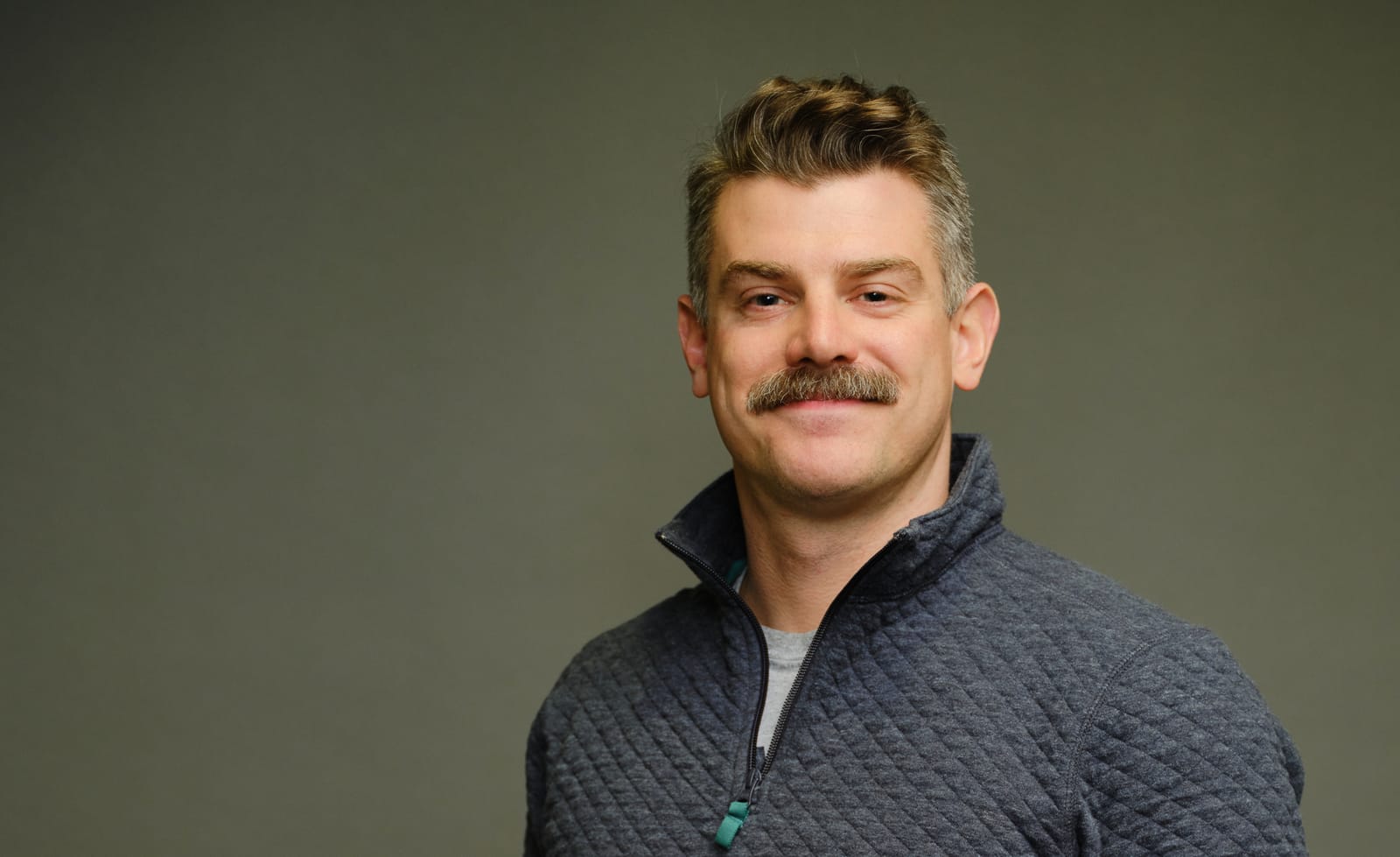
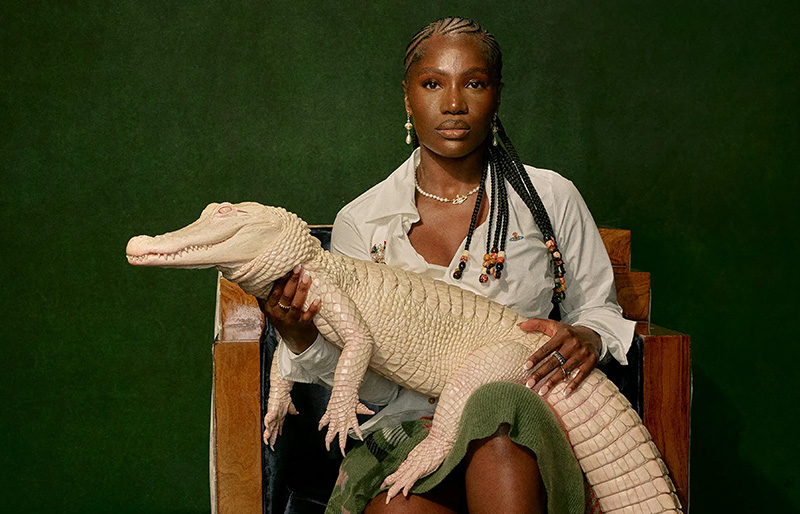
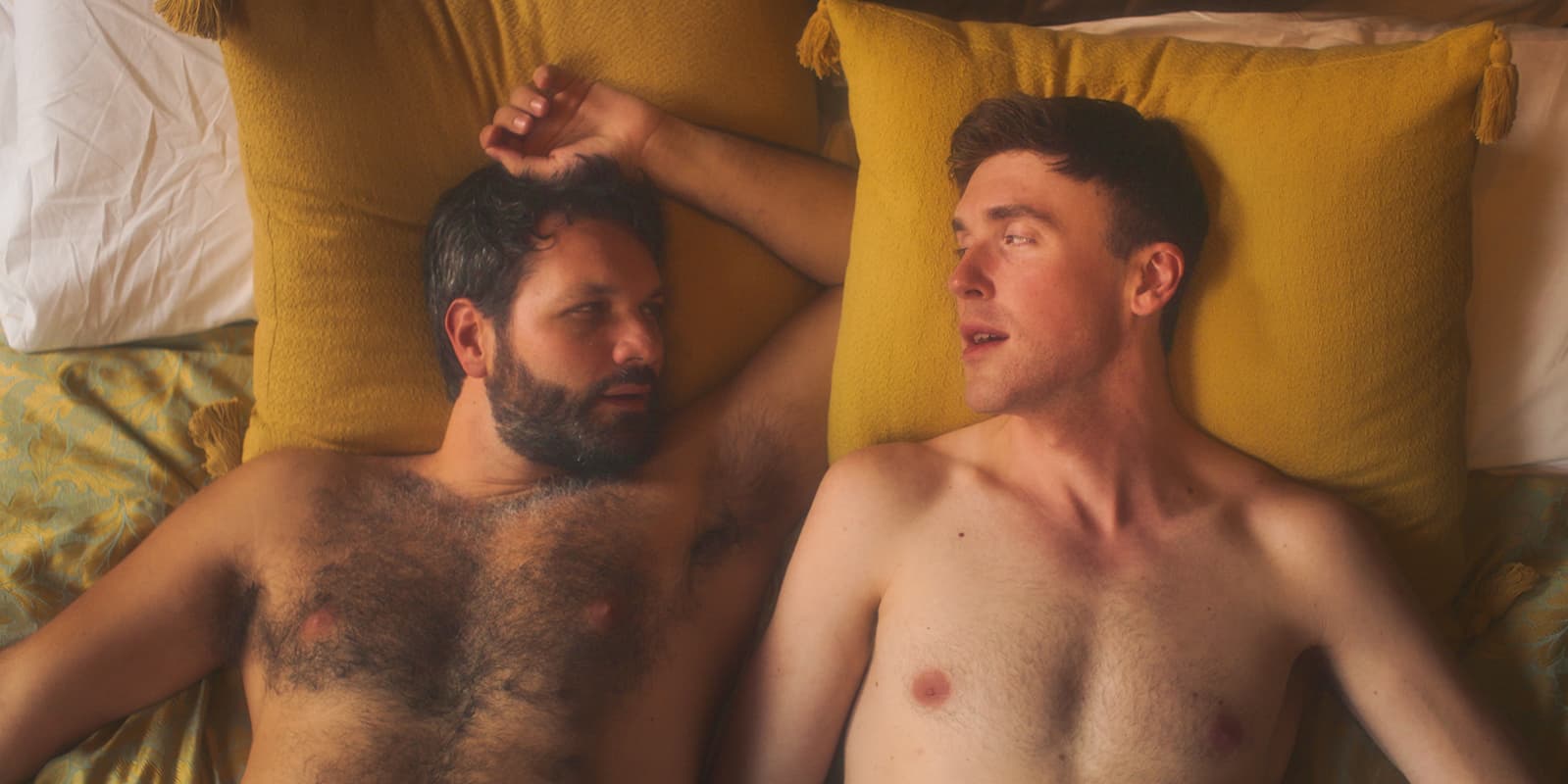
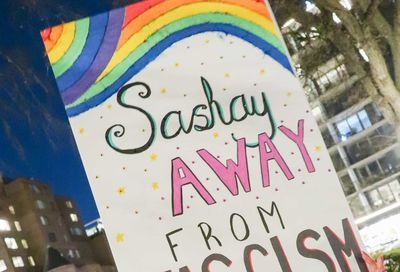
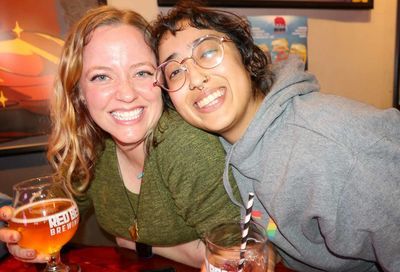
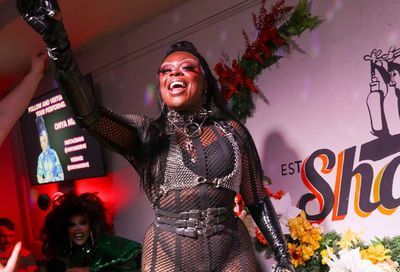
You must be logged in to post a comment.